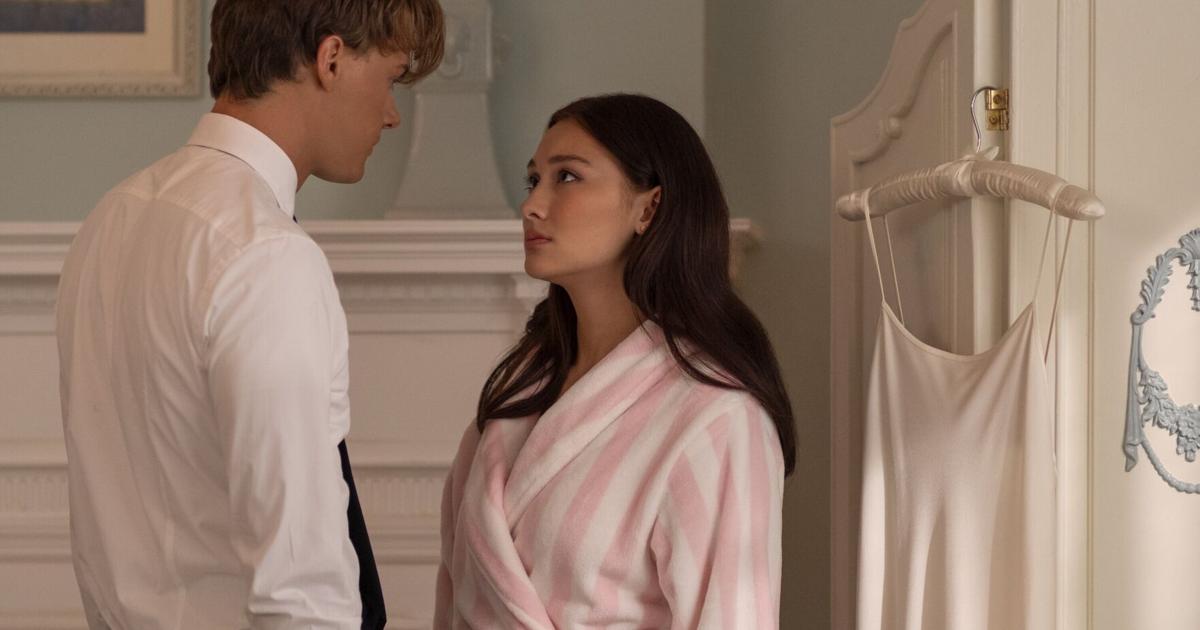By Patricia Karounos
Copyright thestar

“I’m anti-Belly,” an unblinking adult woman told me at a summertime event hosted by Prime Video Canada. We were there to celebrate the streamer’s many young adult book-to-screen adaptations, but the spirited conversation kept turning to the show of the season, “The Summer I Turned Pretty,” and audiences’ unbridled hatred of its main character, Isabel “Belly” Conklin.
For those of you whose entire summer hasn’t been consumed by a television show primarily intended for teenagers, “The Summer I Turned Pretty” (TSITP) is adapted from author Jenny Han’s book trilogy and follows Belly through adolescence into adulthood as she’s romantically torn between her childhood friends Conrad (her first love) and Jeremiah Fisher (her now ex-fiancé). And yes, they’re brothers.
The show, whose finale airs Sept. 17, became a hit when it debuted in 2022, but in its third and final season it’s bigger than ever; according to Prime Video, the premiere alone drew 25 million viewers around the world in its first week — a 40 per cent jump from the season two launch.
With that many eyes on it, a show like TSITP is bound to garner some polarizing opinions. Still, I was shocked by how many adults are unflinching in their dislike of Belly.
She is a complicated and messy character who makes questionable choices in the way only a 20-something navigating a thorny love triangle can — so shouldn’t we grown-up viewers gripped by the resulting drama be able to empathize with a young woman clearly going through it? With the series finale of TSITP streaming this week, the answer seems to be a resounding no.
Of course, staking claim to one side of a love triangle is nothing new: Big or Aidan on “Sex and the City,” Peeta or Gale in “The Hunger Games,” Team Edward or Team Jacob among “Twilight” fans — we’ve all chosen fictional sides before. But more recently, there has also been room to root for the female protagonist; being Team Katniss or LJ (as in Lara Jean from “To All the Boys I’ve Loved Before,” another Han creation) was equally valid. Canadian actor Maitreyi Ramakrishnan proudly stated she was Team Devi — the character she played on Netflix’s “Never Have I Ever” — every chance she got. So what changed to cause all this Belly hate?
The easiest explanation can be found in how the series has been promoted. Prime Video has leaned into the Team Conrad vs. Team Jeremiah of it all, especially this season. “The marketing of the show has been very male-focused,” said Canadian BookToker Bridget Raymundo, known as @bridgelikesbooks.
You’ll find team T-shirts on the Amazon storefront for the show and see posters of Belly firmly positioned between the oppositional Fisher brothers. Official social media accounts for Prime Video and TSITP play up the love triangle; a recent caption on a video of the cast recapping events leading up to the finale reads: “That’s all very nice and cool, but who will she CHOOSE?!”
The structure and substance of TSITP have also evolved. Season one was more of a coming-of-age story: While Belly and Conrad’s feelings for each other were a key part of the first batch of episodes, themes of growing up, parental illness and grief were given a lot of screen time. Those ideas are still being explored, but subsequent seasons have emphasized the rivalry between Conrad and Jeremiah.
When Belly isn’t making decisions about her future based on Jeremiah’s feelings (at one point, she chooses to stay with him over a study abroad trip to Paris), she’s having dreamy flashback memories of Conrad. When she’s not in frame, the brothers are awkward and tense with each other because of their individual relationships with Belly. Why wouldn’t viewers spend their time debating Team Conrad and Team Jeremiah?
On a deeper level, perhaps there’s some internalized misogyny at work here, Raymundo theorizes. TSITP is set in a world that looks like our own, and Belly is a dynamic, unreliable narrator facing real-life stakes — decidedly different from a self-insert character in a fantasy scenario like Bella Swan in “Twilight.”
Conditions are ripe for Belly getting a surface-level assessment. “A lot of people don’t have grace for her because of this mess she’s gotten herself into,” Raymundo said. “I don’t think they can see themselves in this position — they’re like, ‘I could never date two brothers. I’d be home-wrecking the family.’”
Society judges young women harshly, and because viewers are likely to disagree with Belly’s choices, she is defined by her mistakes. It’s easier to cast blame when she’s daydreaming about one brother while engaged to another than it is to remember that she’s just trying to figure it all out. “The whole point of YA is to have these complex, young female characters making missteps and having this coming-of-age experience,” Raymundo said. As one online meme goes: we all claim to want more complicated female characters on screen, but we even can’t handle Belly Conklin at her most chaotic.
Backing one of the brothers isn’t inherently anti-Belly. Zorianna Zurba, a professor at Toronto Metropolitan University’s The Creative School with expertise in pop culture and romance, likens the situation to “Gilmore Girls”: each of Rory’s boyfriends helped her express a different side of herself.
People may not be explicitly Team Belly, but by aligning with Team Conrad or Team Jeremiah, they are identifying with what kind of future that choice lays out for the character. “It’s also the idea of the happy ending — what that means to us personally and culturally,” Zurba said. “Because this narrative is happening at such a pivotal point in [Belly’s] life, it’s about what sort of personal development we are wishing for this person, and how the partner enables that development.”
YA or not, TSITP belongs in the romance genre, so wanting a satisfying conclusion to this particular love story is only natural — even for someone staunchly on Team Belly like Raymundo, who would like to see the character end up with Conrad for good.
“I’ve seen people say that the true feminist ending would be if she picks neither of these boys, but I don’t think it detracts from any sort of personhood for Belly to end up with Conrad if it’s done in a way that feels like it’s a choice of her own volition,” Raymundo said. “I want to see love win.”



